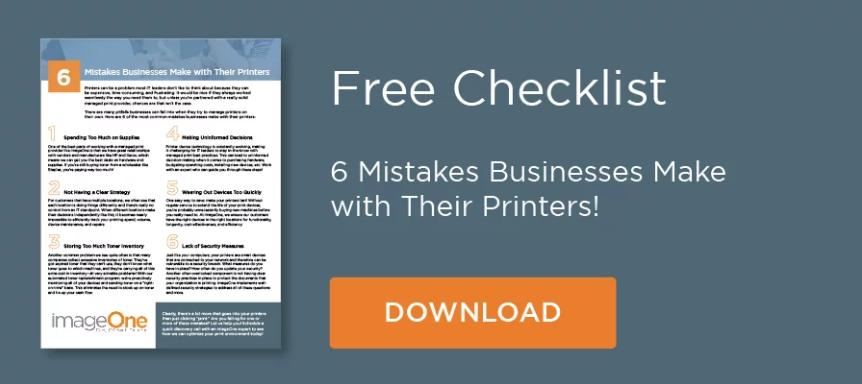This article first appeared on the Thrive Global blog.
The habit of meditation is linked to some of the most successful individuals in the world. Increasingly, business leaders view it as an essential practice, citing benefits like increased creativity, better relationships, and improved health. I’ve written about the traits of a mindful leader and how meditation has helped entrepreneurs achieve incredible success. But what about the opportunity in meditation for employees in the workplace?
Mindful leaders are motivated by a larger purpose to create workplaces that improve the lives of their employees. More than ever, businesses are turning to mindfulness programs to give employees the tools to become their best selves in their professional and personal lives.
When employees are healthier, more self-aware, and more emotionally intelligent, they’re not only happier people — they’re better employees. For example, Google’s Search Inside Yourself (SIY) mindfulness program reported that participants experienced more than a 30 percent increase in their ability to focus and be effective at work after participating in mindfulness training.
If mindfulness programs can create healthy employees and healthy bottom lines, why not embrace the opportunity?
Here are three ways that mindfulness transforms the workplace.
1. Decrease Stress, Increase Health
Stress is more than just an emotion — it’s a physiological response. When stress is chronic, it takes a serious toll on the body. Chronic stress can cause fatigue, changes in the body, and even disease. Stressed out, unhappy employees aren’t leading their best lives or doing their best work.
When I first tried meditating, I was stressed out, overworking myself while on a family vacation, and nearing my breaking point. So, I decided to go sit in a chair in the corner of the room, close my eyes, and just breathe for five minutes. Breathe in, breathe out. I tried it, and I felt better. Over a decade later, I’ve meditated every morning and every night since.
Mindfulness helps reduce stress by creating an awareness of our emotions and changing our response to stress. At the insurance company Aetna, more than 13,000 employees have participated in mind-body stress reduction programs. Here, they learn how to deal with stress more effectively, receive mindfulness meditation training, and practice Viniyoga stress reduction.
The results? Aetna employees reported a 36 percent reduction in stress levels and the company reduced employee healthcare costs by 7 percent.
2. Decrease Anxiety, Increase Productivity
When people claim that mindfulness increases well-being, they are talking about more than just feeling relaxed. There is now substantial research that proves mindfulness training activates the areas of the brain associated with emotional regulation and management. Employees with higher emotional awareness and emotional intelligence are better collaborators and team players who experience less stress throughout the day.
Consider this quote, a favorite of mine by neurologist, psychiatrist, and Holocaust survivor Viktor Frankl: “Between stimulus and response, there is a space. In that space is our power to choose our response. In our response lies our growth and our freedom.” Before I practiced mindfulness meditation, that space between stimulus and response was much smaller. When the space between stimulus and response is narrow, we’re often more anxious and less productive.
General Mills has been offering mindfulness programs to employees since 2006. The company offers various meditation retreats for senior leaders and managers, a two-hour, seven-week course for all employees, and regular, company-wide meditation sessions during the workday.
After the seven-week course, General Mills employees reported a 20 percent decrease in rushing through tasks without paying attention and a 40 percent increase in their ability to optimize their personal productivity each day.
3. Decrease Distraction, Increase Creativity
Research has found that the average person spends about half of their waking hours thinking about something other than what they are currently doing — and studies show that a wandering mind will often make people unhappy. In a world that is increasingly full of distraction, finding tools to train our attention and developing a greater ability to focus is more crucial than ever.
When we are more focused at work, we are more effective. Mindfulness training creates space for innovation and creative thinking. It does for me! Since I started my meditation practice, I’ve approached many traditional business challenges from a non-traditional angle.
From bringing team members on hikes to have difficult — but transparent and vulnerable — conversations, to opening our company finances during a financially challenging year (yes, really!), meditation has given me the strength and clarity of mind to make risky and bold business decisions that pay off.
A survey conducted by the Institute for Mindful Leadership found that 93 percent of leaders felt that mindfulness training helped them think more innovatively, and almost 70 percent said it helped them think more strategically.
Employees who participated in Google’s Search Inside Yourself (SIY) program reported less emotional drain, more innovative thinking and clarity, and the ability to stay calm during challenges.
The benefits of mindfulness training accumulate to create stronger organizations that positively impact the lives of their employees and their families — and when employees are happier, you create a more productive, effective workplace.
If you’re a leader interested in modeling mindfulness at your company, follow me on Twitter and LinkedIn and get my Mindfulness Resources Guide here for free.






